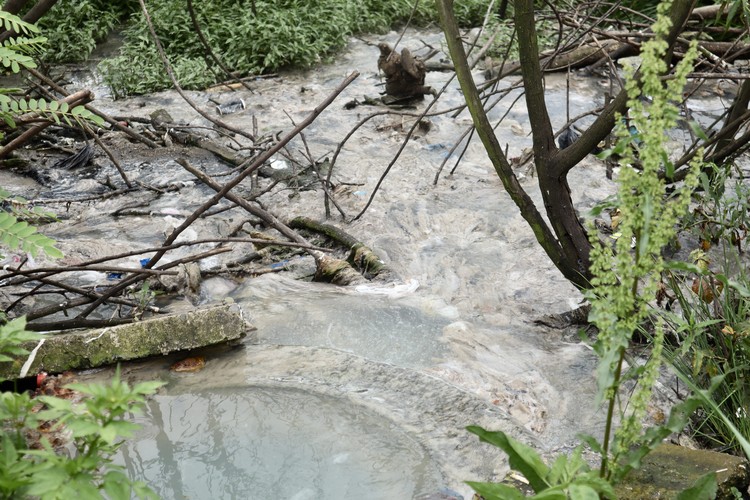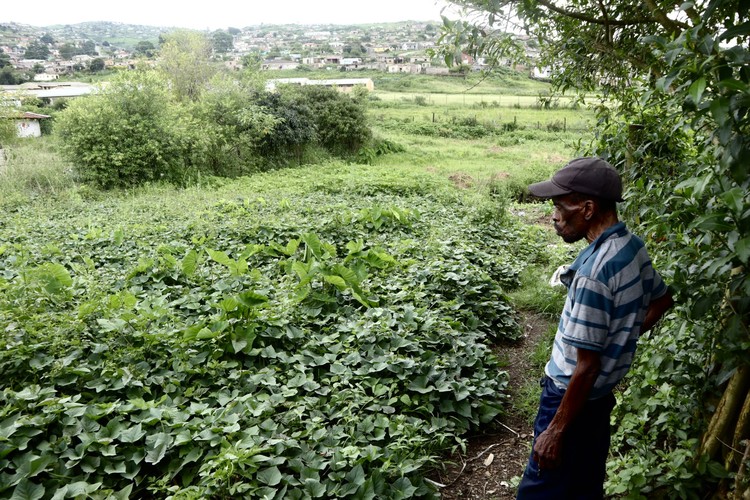Pietermaritzburg township plagued by raw sewage spills
Msunduzi Municipality blames ageing infrastructure, improper waste disposal, and illegal connections
Raw sewage has been overflowing into homes and streets in Kwapata, in Edendale, Pietermaritzburg for years. Photos: Joseph Bracken
- Residents of Kwapata, in Edendale, Pietermaritzburg say they are tired of recurring raw sewage spills.
- They complain that when one sewerage problem is fixed, another one arises.
- The municipality blames the frequency of the sewage spills in Kwapata on severely blocked drains due to “ageing infrastructure, improper disposal waste, and illegal connections to the sewerage system”.
The pungent smell of raw sewage is hard to miss as you walk through the streets of Kwapata, in Edendale, Pietermaritzburg.
Residents say human excrement and foul smelling water constantly flow through their homes and streets. They say whenever one sewerage problem is fixed by the municipality, another arises.
The municipality blames the frequency of sewage spills in Kwapata on severely blocked drains due to “ageing infrastructure, improper disposal waste, and illegal connections to the sewerage system”.
Jabulani Dube has lived in Kwapata for seven years. He said the smell from the raw sewage that frequently flows past his home has become so unbearable that he takes medication for nausea. Dube lives with his brother, uncle and cousin.
Dube said the overflow is caused by an illegal connection from the houses at the top of the street to a stormwater drain near his home. The raw sewage flows into the Kwapata River, which feeds into the Msunduzi River.
The latest water sample taken by uMgeni Water on 8 January 2024 in the Kwapata River showed an E.Coli count of 41,060, which indicates sewage pollution. This result shows a “high risk” level for human health and can cause some “significant environmental damage”, uMgeni Water said. An E.Coli count over 10,000 “is the key measure applied for ‘failure’ of a site result in PMB”.
Kwapata resident Jabulani Dube says the smell from the raw sewage that flows past his home is unbearable. They have had to relocate this community garden due to the overflowing sewage.
Next to Dube’s home was a community-run vegetable garden. But Dube explained that the garden had to be moved due to the smell and overflowing sewage.
Another resident, Busisiwe Mkhize, said a sewerage pipe next to her fence has been blocked for the past five years and sewage often overflows into her garden. She says she has complained to the municipality many times. The last time the ward councillor’s office came to assess the issue was mid-2023, she said.
The smell is so bad that she cannot open the windows of her house. She used to tend to the shrubbery on the other side of her fence to “make it beautiful”, but since the leakages started, she is no longer able to do so.
The blocked pipe outside Mkhize’s home has caused raw sewerage to flow past the houses below hers, including that of Siziwe Ngubane who runs a sewing business from home.
Customers don’t want to come to her home due to the smell, said Ngubane. She says she is also worried about the effects on the health of herself and her family.
Anele Makhanya, acting manager of communications and Intergovernmental relations for Msunduzi Municipality, said the long-term plan to stop the frequent spillages in Kwapata “includes infrastructure upgrades, regular maintenance and inspections, community education and awareness programs, and stricter enforcement of regulations.”
The municipality is also working with The Duzi-uMngeni Conservation Trust (DUCT), a non-profit organisation focussed on conservation of the Msunduzi and uMngeni rivers.
DUCT has two community workers in Kwapata who monitor the sewer lines and report back to the municipality. “We are the eyes and ears on the ground,” said DUCT project manager Lethu Mahlaba.
Support independent journalism
Donate using Payfast

Don't miss out on the latest news
We respect your privacy, and promise we won't spam you.
Next: Deadline to open Stellenbosch rail link pushed out two months
Previous: Home Affairs may no longer block your ID on a whim, court rules
© 2024 GroundUp. This article is licensed under a Creative Commons Attribution-NoDerivatives 4.0 International License.
You may republish this article, so long as you credit the authors and GroundUp, and do not change the text. Please include a link back to the original article.
We put an invisible pixel in the article so that we can count traffic to republishers. All analytics tools are solely on our servers. We do not give our logs to any third party. Logs are deleted after two weeks. We do not use any IP address identifying information except to count regional traffic. We are solely interested in counting hits, not tracking users. If you republish, please do not delete the invisible pixel.


